A substantial majority of Americans – 64% – say they have a favorable opinion of the Israeli people. However, fewer than half (41%) have a favorable view of the Israeli government; a larger share (51%) views the government unfavorably.
The public also expresses more positive views of the Palestinian people than the government. While nearly half (46%) view the Palestinian people favorably, just 19% have a favorable opinion of the Palestinian government.
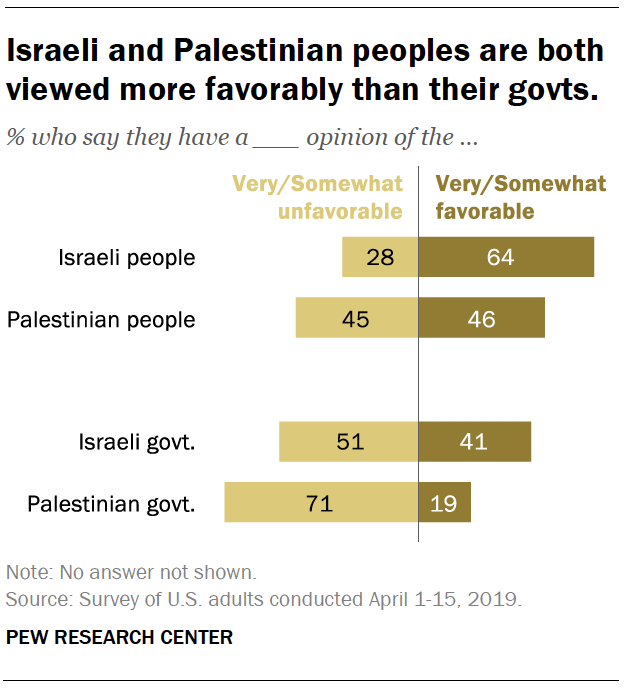
The new Pew Research Center survey, conducted April 1-15 among 10,523 U.S. adults, finds large partisan differences in opinions about both the Israeli and Palestinian peoples and their governments.1
While majorities in both parties have favorable views of the Israeli people, Republicans and Republican-leaning independents are more likely than Democrats and Democratic leaners to say this (77% vs. 57%).
The partisan gap in opinions of the Israeli government is even wider. By nearly two-to-one (61% to 32%), Republicans have a favorable view of Israel’s government. By contrast, two-thirds of Democrats view Israel’s government unfavorably, while just 26% have a favorable opinion.
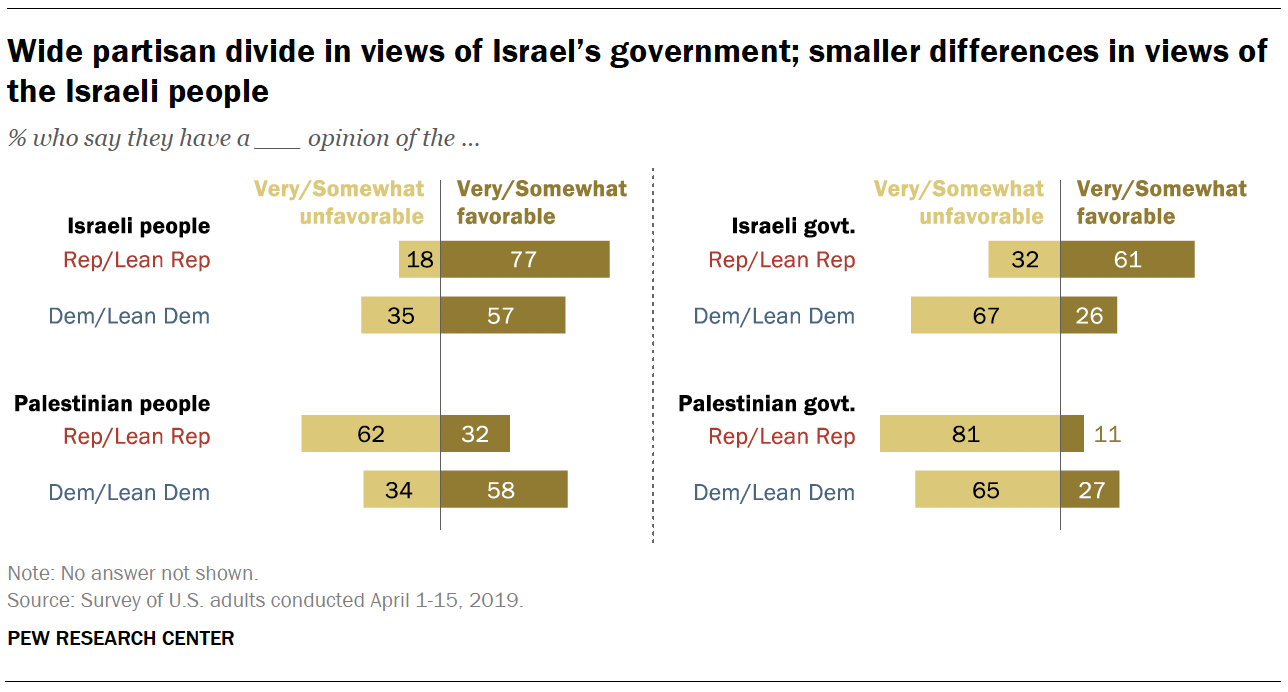
Among Republicans, there are religious differences in these views. Evangelical Protestants are more likely than non-evangelicals to express a favorable opinion of Israel’s government (73% of evangelical Republicans vs. 55% of non-evangelicals).2
Democrats have much more positive views of the Palestinian people than do Republicans. A 58% majority of Democrats express a favorable opinion of the Palestinian people, compared with only about a third (32%) of Republicans. Majorities in both parties feel negatively toward the Palestinian government, but a greater share of Republicans (81%) than Democrats (65%) view it unfavorably.
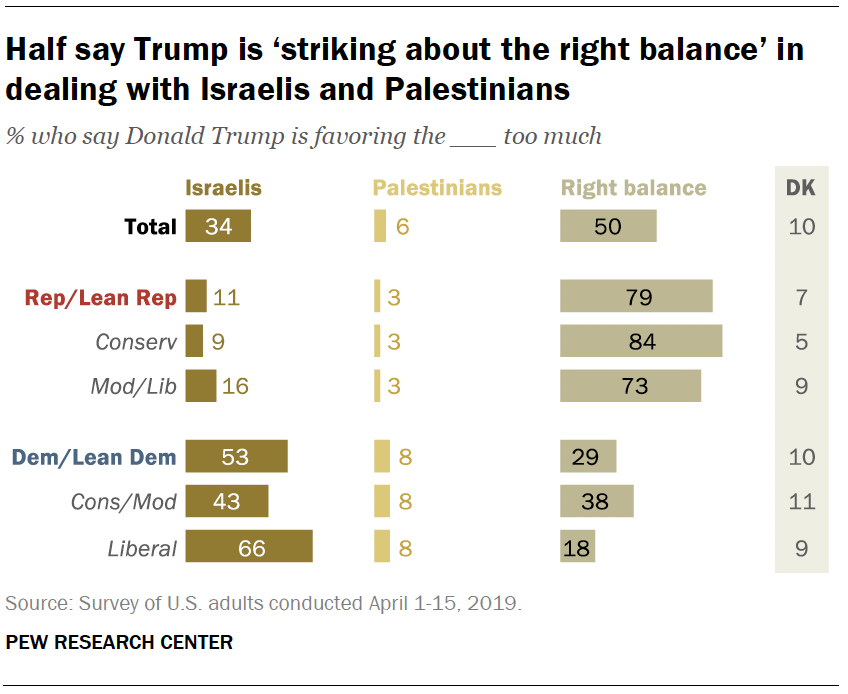
This survey also finds that half of Americans say President Donald Trump is “striking about the right balance” in dealing with the two sides. Roughly a third (34%) say Trump is favoring the Israelis too much, while 6% say he is favoring the Palestinians too much.
A wide majority of Republicans and Republican leaners (79%) say Trump is striking the right balance. Few Republicans say he is favoring either the Israelis (11%) or the Palestinians too much (3%). Conservative Republicans (84%) and moderate and liberal Republicans (73%) largely agree that Trump is taking the right approach to the Middle East.
About half of Democrats and Democratic leaners (53%), on the other hand, say Trump is favoring the Israelis too much; 29% say he is striking about the right balance, and 8% say he favors the Palestinians too much. By a wide margin, most liberal Democrats (66%) say Trump is favoring the Israelis too much. Moderate and conservative Democrats are more divided: 43% say he is favoring the Israelis too much, while nearly as many say he is striking the right balance (38%).
Nearly half of Republicans feel favorably toward Israelis, unfavorably toward the Palestinians
When Americans’ attitudes toward Israelis and Palestinians are considered together, a plurality (39%) has a favorable opinion of both Israelis and Palestinians, while smaller shares have mixed views or unfavorable opinions of both peoples.
In views of the two governments, 43% have an unfavorable opinion of both, which is greater than the shares who hold mixed opinions or feel favorably about both governments.
Among Republicans, nearly half (46%) view Israelis favorably and Palestinians unfavorably. Yet almost as many Republicans hold some other combination of opinions, including 30% who feel favorably toward both peoples.
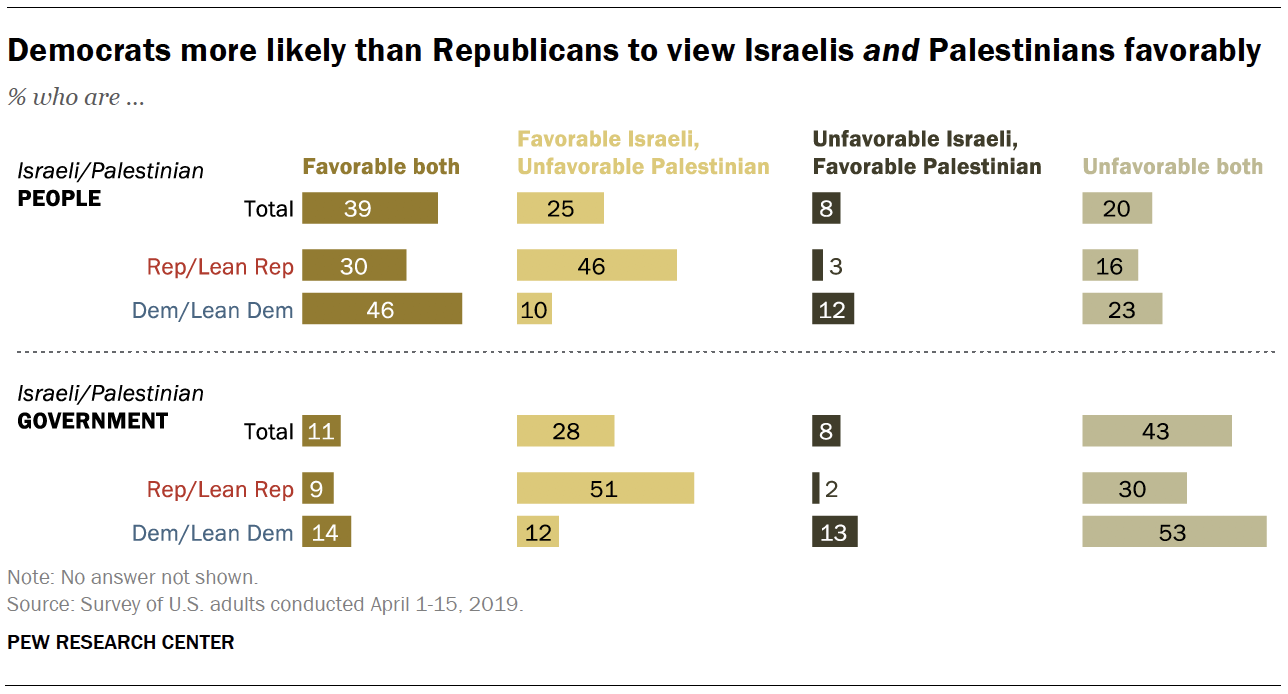
Democrats, by contrast, are more likely to view both Israelis and Palestinians positively (46% are favorable to both peoples).
The pattern of opinion is different in views of the two governments. About half of Democrats (53%) have unfavorable views of both governments; that is larger than the shares with mixed views or favorable views of both governments. Among Republicans, 51% view the Israeli government favorably and the Palestinian government unfavorably, which is larger than the shares giving other sets of opinions.
Age differences in views of Israelis and Palestinians
Majorities across age groups have favorable views of the Israeli people, although those ages 65 and older are most likely to express a favorable opinion.
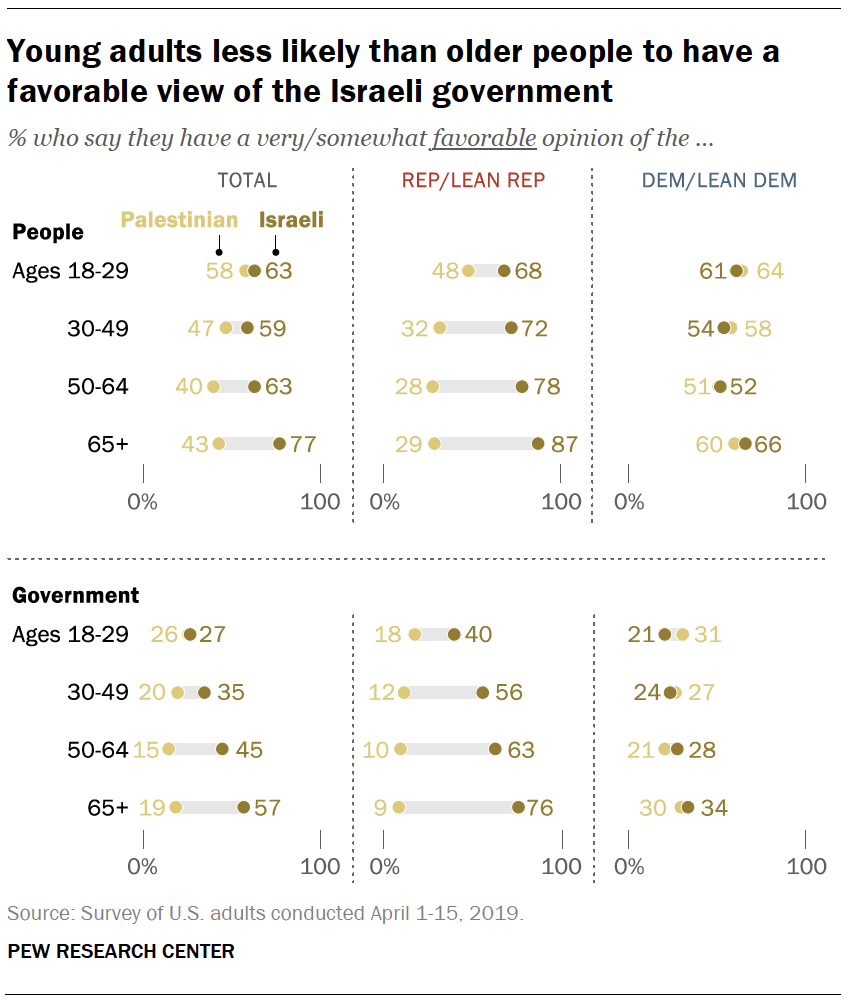
Yet there are much wider differences in opinions of the Israeli government; those 65 and older are the only age group in which a majority (57%) have a favorable view of the government. Among the youngest adults (those younger than 30), just 27% view Israel’s government favorably.
Favorable views of the Israeli government among older adults are driven by older Republicans and Republican leaners, whose views are significantly more favorable than those of younger Republicans. There are more modest age differences among Democrats.
Younger Republicans also have less favorable views of the Israeli people – and more favorable views of the Palestinian people – than do older Republicans. Nearly half of Republicans and Republican leaners under 30 (48%) have a favorable opinion of the Palestinian people, compared with 30% of those 30 and older. Democrats in every age group are more favorable toward the Palestinian people than are their Republican peers.